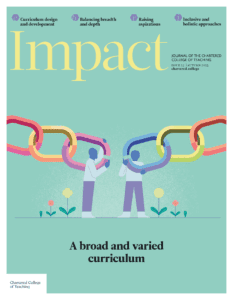LORNA GARDINER, INDEPENDENT EDUCATION FACILITATOR; LEAD CONSULTANT, THINKING MATTERS, UK
Introduction
It is widely recognised that young people need to develop the critical and creative thinking skills and dispositions necessary to thrive in the challenging context of the 21st century (OECD, 2018; NFER, 2025). Driven by a desire to ‘futureproof’ their learners, some schools become recognised ‘Thinking Schools’ (Thinking Matters, 2025), pursuing the vision for their students to become ‘meta-learners’, i.e. metacognitive, self-regulating learners. This case study will identify the discrete features of the implementation model adopted by Thinking Schools in two UK regions who have gained accreditation with the University of Exeter. It will summarise the impact and benefits of successfully embedding a visible culture of whole-school metacognition (Ritchhart, 2015). The focus schools are: the primary schools in the Nexus Education Schools Trust (NEST), located in Brom
Join us or sign in now to view the rest of this page
You're viewing this site as a guest, which only allows you to view a limited amount of content.
To view this page and get access to all our resources, join the Chartered College of Teaching (it's free for trainee teachers and half price for ECTs) or log in if you're already a member.











